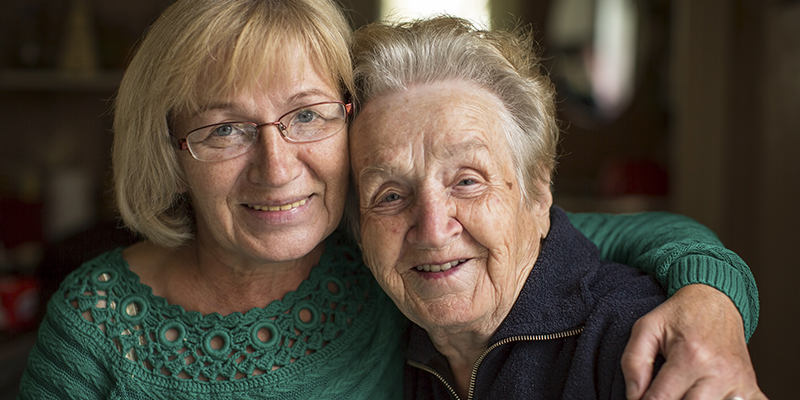Learn When to Consider Hospice Care
AGRACE HOSPICE & PALLIATIVE CARE
How do you help a parent who’s struggling with illness?
Helping a loved one face a serious illness is never easy, but you don’t have to do it alone. If you need someone to guide you, ask for Agrace.
Agrace Hospice & Palliative Care has some of the most innovative services and facilities available anywhere in the country. Not only is hospice care one of the most comprehensive forms of care people can receive at the end of life, it’s also very affordable.
Here are answers to some of the common questions that people often ask about Agrace.
Is hospice only for the last days of life?
No. People are eligible to receive hospice care when they have 1) a diagnosis of a life-limiting condition, 2) a life expectancy of six months or less and 3) a primary goal of comfort, not cure. They do not need to be bedbound, wheelchair-bound or even homebound to enroll, but two physicians must certify that the person meets the basic hospice eligibility criteria. When patients are able to have hospice care for several weeks or months, there’s more time for hospice staff to support and comfort them—body, mind and spirit. Hospice care also includes emotional and spiritual support for patients’ family members, to help them prepare for the loss and process their grief after the death.
Is hospice the same as around-the-clock nursing care?
No. It is an intermittent service, which means the Agrace care team makes scheduled in-home visits according to the patient’s and family’s needs. Importantly, our patients have access to a nurse and a social worker any time of day or night for information, support and problem-solving, either by phone or a home visit.
Does the patient go to the Agrace inpatient unit to get hospice care?
Most likely not—most of our patients are able to stay in the comfort of home. About 95 percent of our services are provided in patients’ (or relatives’) homes, or in assisted living or nursing homes. However, if the patient has pain, breathing difficulties or other health problems that cannot be managed at home, their nurse may recommend that they come to one of Agrace’s two inpatient units for care—usually for just a few days—until they are well enough to return home.
Is hospice care expensive?
Most patients have minimal out-of-pocket expenses for hospice care, even for medications and equipment that are often needed in the last months of life. The comprehensive care and support provided by hospices is almost completely paid for by Medicare, Medicaid or private health insurance, although there may be small co-payments for medications.
When a loved one has a life-limiting illness, hospice can be incredibly helpful. For more information about how Agrace can help or to see if your loved one qualifies, visit Agrace.org or call (608) 276-4660.





Comments are closed.